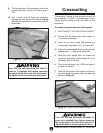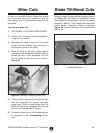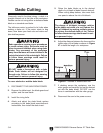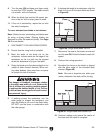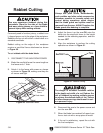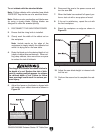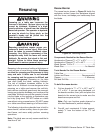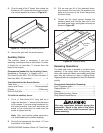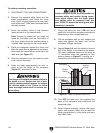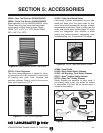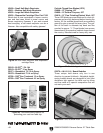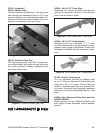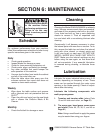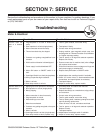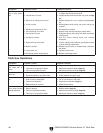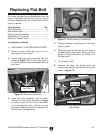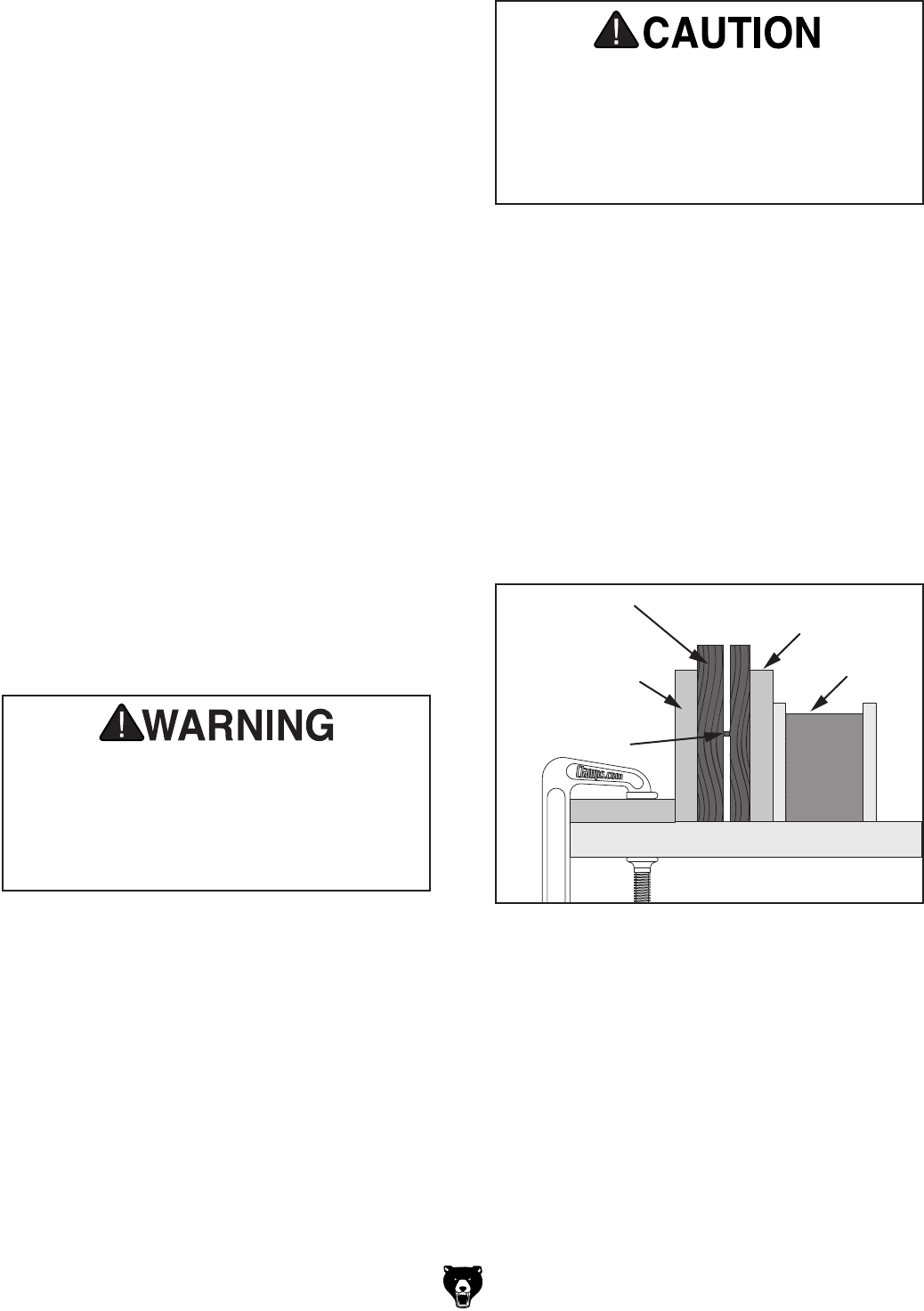
-40-
G0605X/G0606X Extreme Series 12" Table Saw
To perform resawing operations:
1. DISCONNECT THE SAW FROM POWER!
2. Remove the standard table insert and the
blade guard/splitter, and install the riving
knife. Install a ripping blade and a zero clear-
ance table insert. Then lower the blade below
the table surface.
3. Attach the auxiliary fence to the standard
fence and set it to the desired width.
Note: Account for blade kerf, the rough cut
made by the blade, and the inaccuracy of
the fence scale when the auxiliary fence is
installed when figuring out the correct width.
4. Place the workpiece against the fence and
slide the resaw barrier against the workpiece.
Now clamp the resaw barrier to the top of the
table saw
(see Figure 57).
5. Slide the workpiece over the blade to make
sure it moves smoothly.
6. Raise the blade approximately an inch, or
close to half the height of the workpiece
(Figure 57), whichever is less.
Always use push sticks or push paddles to
increase safety and control during opera
-
tions which require that the blade guard
and splitter must be removed from the
saw. ALWAYS replace the blade guard after
resawing is complete.
7. Plug in the table saw, turn it ON, and use a
push stick to feed the workpiece through the
blade using a slow, steady feed rate.
8. Flip the workpiece end for end, keeping the
same side against the fence, and run the
workpiece through the blade.
9. Repeat Steps 6–8 until the blade is close to
half of the height of the board to be resawn.
The ideal completed resaw cut will leave an
1
⁄8" connection when the resawing is com-
plete as shown in
Figure 57. Leaving an
1
⁄8"
connection will reduce the risk of kickback.
Figure 57. Ideal completed resaw cut.
10. Turn OFF the table saw, then separate the
parts of the workpiece and hand plane the
remaining ridge.
11. When finished resawing, remove the resaw
barrier and auxiliary fence and
re-install the
blade guard/splitter or riving knife and stan
-
dard table insert.
The danger of kickback increases relative to
the depth of a cut. Reduce the risk of kick
-
back by making multiple passes to achieve
the desired depth of cut. Failure to follow
these warnings could result in serious per
-
sonal injury.



